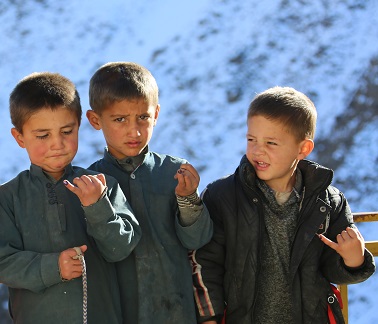
Kabul, 17 January 2022 – The first national polio immunization campaign for 2022 begins this week, 17-20 January 2022, targeting 9.9 million children aged 0–59 months across the country.
The recent campaign in November 2021 delivered polio vaccinations to 8.5 million children under the age of 5 while the December campaign vaccinated more than 8 million children. In total, 2.6 million children have now been vaccinated for the first time in more than 3 years.
2021 was the year with the lowest ever polio transmission in Afghanistan, providing an unprecedented opportunity to interrupt transmission of wild poliovirus and achieve eradication. Four cases of wild poliovirus type 1 (WPV1) were reported: the first, in Ghazni province in January, and 3 in Kunduz province in October and November.
In response to the detection of 3 cases of WPV1 in Kunduz earlier this month, the polio programme also conducted a third case response campaign in 7 provinces in order to stop the outbreak and protect children from the crippling but preventable disease.
“As we begin 2022, we have our best opportunity yet to end polio in Afghanistan,” said Dr Dapeng Luo, WHO Representative in Afghanistan. “To reach that goal, we have 5 more campaigns planned for 2022 and it is critical that we maintain this momentum to reach our final goal of zero cases.”
Afghanistan is moving closer to eradication. Vaccinating every child through multiple doses of the polio vaccine is the only way to stop the circulation of the virus in the country.
“UNICEF is committed to ensuring all children in Afghanistan are protected from polio and other vaccine-preventable diseases,” said Alice Akunga, UNICEF Representative a.i. “This year, we must intensify efforts to reach every child with the polio vaccine and eradicate this disease for good,” she said.
Frontline health workers continue to play a critical role in every vaccination campaign. The polio programme calls on all leaders, stakeholders and communities to safeguard frontline workers for the successful implementation of the campaign.


